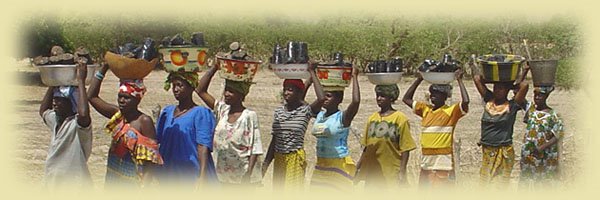Back to you Jim...
 Alright, now it's your turn to grab the mic (or keyboard?) and do the talking.
Alright, now it's your turn to grab the mic (or keyboard?) and do the talking.
What is your incentive for doing things in an environmentally friendly way (for example, buying organic products or recycling)?
What discourages you from engageing in further actions (for example, composting, if you haven't already)?
How do you think you can most effectively shrink your footprint?
Finally, do you envision yourself using renewable energy - like solar panels or wind generators - in the next 5 years? If so, what source? If not, why not?
If you're not a blogger user, don't worry! Just leave a comment as Anonymous and write your name in the comment text box.
Et voilà.


2 comments:
My environmentally friendly actions include recycling, re-using paper as much as possible, buying organic when possible, using big cotton bags to do the groceries and when shopping, reducing my water and electricity consumption, walking everywhere and using public transportation. Also, one thing we don't always count as an environmentally friendly action is awareness. In order for a concrete change or action to take place, there must first and foremost be awareness. Therefore I add to my list an awareness of the effects of the actions that, for many reasons I cannot yet change.
Environmentally friendly actions are absolutely necessary for the survival of life on earth as we know it. It know this might sound like an exageration, but it's not, simply because of global warming, the increase of human population and the plundering of resources world wide. Each human being and animal needs three things to survive: air, water, and energy (food and the sun). We are basically poisonning and/or running out of the three, at an alarmingly fast pace.
Notice here that I am not using the traditional environmental slogan "save planet earth". Why? Simply because Earth will still be around once human nature is wipped out. Earth has existed throughout massive climate, flora and fauna changes for millenia, therefore Earth really has nothing to worry about. What we want to "save" is "life on earth for human beings" which is limited to a strict and delicate balance between climate, flora and fauna which produce and renew the water, air and energy we need to survive and live well. I think once the average individual starts to figure this out and properly understand what it means, we will start seeing changes on a more global scale. In the mean time, we need to keep on trucking and push where we can.
To put our "drops in the ocean" of the green movement, my boyfriend and I are starting an online clothing store selling organic and bamboo clothing that does not look like an old t-shirt and potato sack pants. Our long term goal is to mainstream this type of clothing, therefore sell clothing that is trendy and stylish, but also environmentally friendly. Most of the designers we found are from Vancouver, Victoria and Montreal.
As for wind and solar energy, as soon as we can afford them, we are buying them. We are already looking into a company that sells wind power to offset the energy of our online store. Please beware of biofuels. A lot of governments are pushing for this and it is not sustainable. The earth is already stretched enough as it is, there is no need to "produce" fuel from the ground up when there is always plenty of sun and/or wind everywhere in the world.
After attending a UN global forum on global warming and hearing diplomats, UN representatives and green business leaders speak, the one conclusion I made is this: You don't need the government or the UN to tell you what to do or how to do, if you have a good idea, go for it, and the rest will follow.
Lastly, I would like to quote Margaret Mead as an inspiration to all green, social justice and human rights movements: "Never doubt that a small group of committed people can change the world. Indeed, it is the only thing that ever has."
Here's my problem. I don't know how much more environmentally friendly buying organic is. Now yes they use natural fertilizers and fewer chemicals - but go to your local grocers and see where your organic produce is being grown. 9 times out of 10 it will say 'product of the USA' and generally that means california due to its growing season. Which brings me to my way of reducing my ecological footprint. I attempt to eat produce and foods that are a product of Ontario, and if that's impossible a product of Canada.
why are you eating apples from New Zealand?? - that just doesn't make sense kids.
In other news I like to recycle in the home before sending it to the plant. My containers for leftovers are old yogurt containers and margerine ones - because I've just saved one meltdown of the plastic.
Little things can make a bug difference.
C
Post a Comment